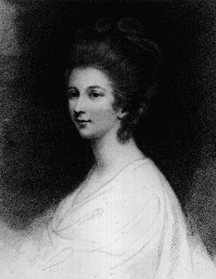


Henrietta (1758) is a mid-eighteenth-century English novel written by Charlotte Lennox, who is most well-known for her first work, The Female Quixote. In Hennrietta, Lennox tells the the story of the young and beautiful eponymous heroine who is repeatedly forced out of secure positions and into perilous environments as a result of her moral rectitude. She must learn to navigate a dangerous social landscape without family, without friends, without finance, and without compromising her integrity. As the narrative center, Henrietta works as a foil to the the affectations and improprieties of those she encounters. Though the first edition was published anonymously, the title page notes the work is “By the author of Female Quixote”; therefore, her authorship would have been generally known, given her visibility within elite literary circles[1]. Rapidly pirated, a second corrected edition was published in 1761[2]. Henrietta is both a bildungsroman and a comedy of manners written consciously in the new traditions of Samuel Richardson and Henry Fielding; however, the narrator’s satirical, self-reflexive voice places Henrietta more in line with Fielding’s style than with Richardson’s sentimentalism.[3]
Plot edit
Critical Reception edit
References edit
- ^ Lennox, Charlotte (2008). Perry, Ruth; Carlile, Susan (eds.). Henrietta. Lexington, KY: University of Kentucky Press. p. vii. ISBN 978-0-8131-9190-4.
- ^ Lennox, Charlotte (2008). Perry, Ruth; Carlile, Susan (eds.). Henrietta. Lexington, KY: University of Kentucky Press. p. viii. ISBN 978-0-8131-9190-4.
- ^ McTesty, Testy (1984). "Amazing Article Title". Whatever: The Journal.
